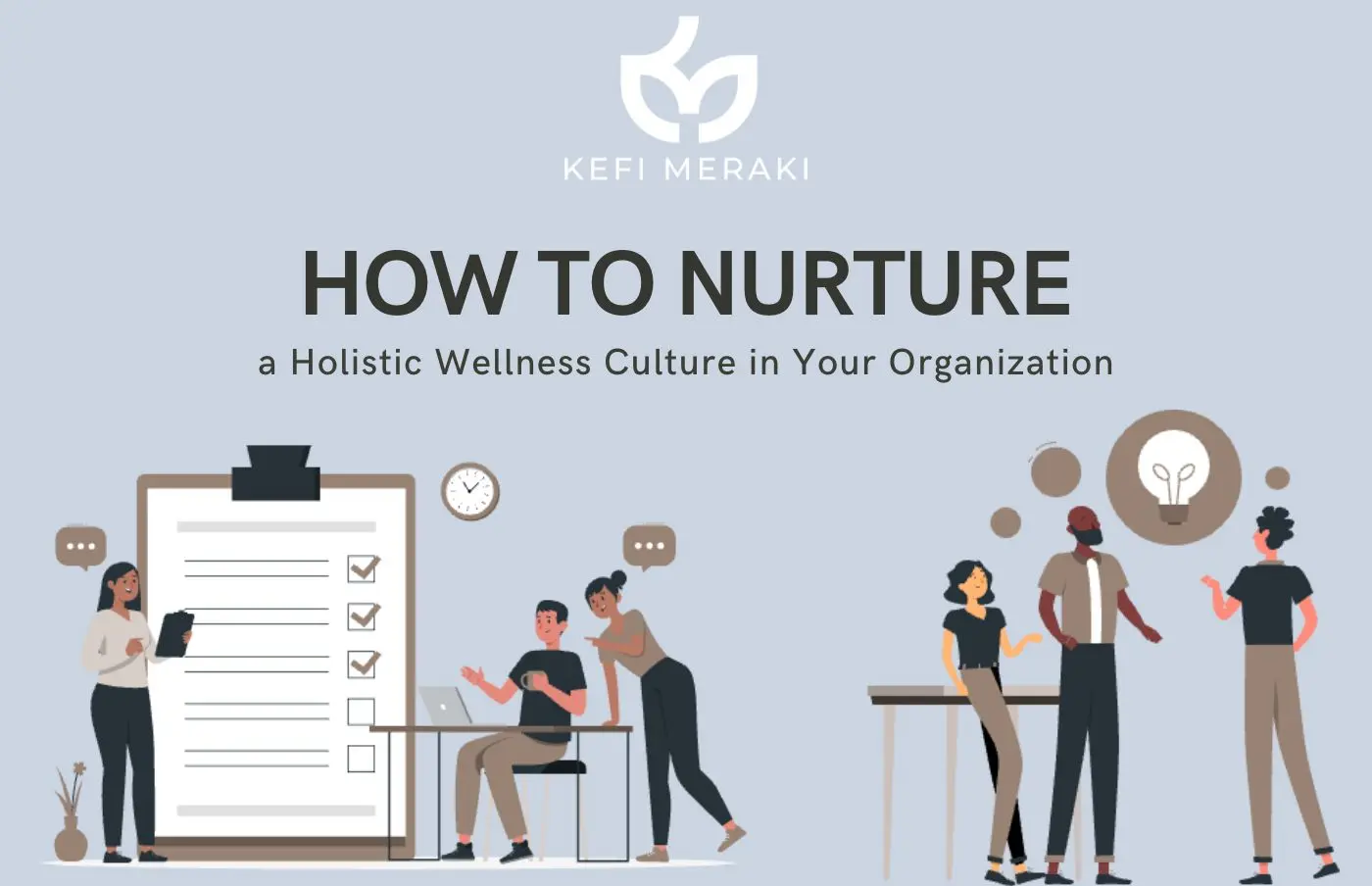In today’s fast-paced work environment, fostering a holistic wellness culture within an organisation is not just beneficial; it’s essential. A comprehensive approach to wellness that includes physical, mental, emotional, and social health can significantly enhance employee productivity, satisfaction, and ultimately, the organisation’s bottom line. This guide provides actionable steps on how to cultivate such a culture.
Define What Wellness Means for Your Organization
Start by defining what holistic wellness means specifically for your organisation. Engage stakeholders at all levels to contribute their ideas and define wellness goals that align with the company’s mission and values. This might include physical health initiatives, mental health support, work-life balance policies, and programs that foster social connections.
Conduct a Wellness Audit
Perform an audit of existing wellness initiatives and identify gaps where improvements are needed. Use surveys, focus groups, and one-on-one interviews to gather employee feedback on current wellness programs and areas where they feel support is lacking. This data will form the foundation of your strategy.
Develop a Comprehensive Wellness Program
With insights from your audit, develop a wellness program that addresses the four pillars of holistic wellness: physical, mental, emotional, and social. Incorporate programs like health screenings, mental health days, workshops on stress management, and social events to encourage camaraderie and team-building.
Integrate Wellness Into Corporate Policy
For wellness initiatives to be truly effective, they need to be woven into the fabric of your company’s policies. This might include flexible working hours, remote work options, a mental health leave policy, and support for fitness memberships. Ensure these policies are well-communicated and easily accessible to all employees.
Train Leadership and Managers
Leaders and managers should be trained not only to promote wellness initiatives but to embody and advocate for them. They should be equipped to recognize signs of burnout, offer support, and encourage their teams to take advantage of wellness programs.
Monitor, Evaluate, and Adapt
Establish metrics to regularly assess the effectiveness of your wellness initiatives. This could include employee satisfaction scores, utilisation rates of wellness programs, and feedback on health outcomes. Be prepared to adapt programs as needed based on feedback and changing needs.
Celebrate and Innovate
Regularly celebrate the successes of your wellness initiatives and recognize the contributions of individuals and teams in promoting workplace wellness. Continuously seek innovative ways to enhance and expand your wellness programs, keeping up with new wellness trends and technologies.
Our Conclusion
“Creating a holistic wellness culture is an ongoing process that requires commitment from all levels of an organisation. By taking these steps, you can build a supportive environment that nurtures the complete well-being of every employee, paving the way for a healthier, more productive workforce”.
Ready to transform your workplace into a thriving hub of health and happiness? Start by implementing one of the wellness initiatives from our guide. Share your journey towards a holistic wellness culture with us or connect with us on social media to discuss your progress and challenges. Let’s create healthier work environments together!






